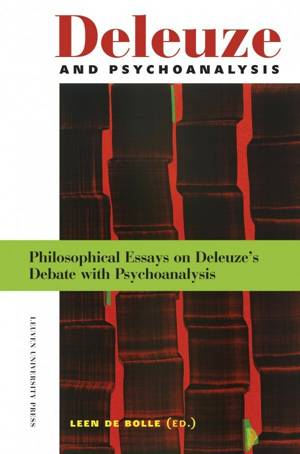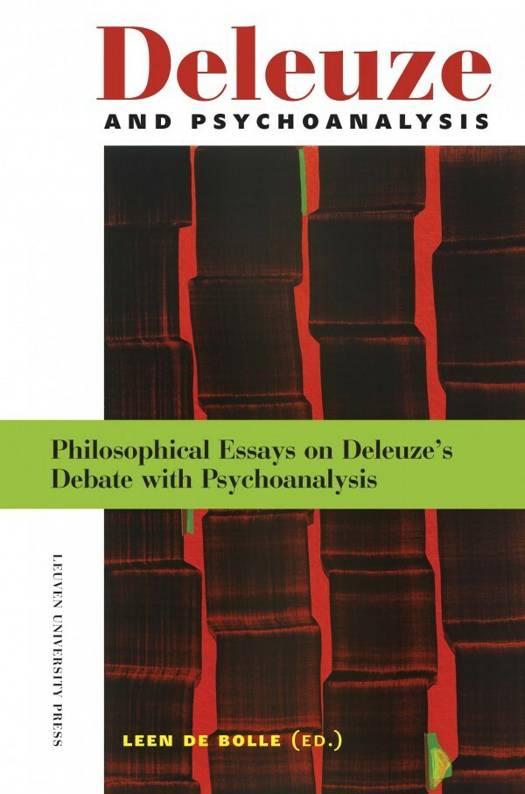
- Afhalen na 1 uur in een winkel met voorraad
- Gratis thuislevering in België vanaf € 30
- Ruim aanbod met 7 miljoen producten
- Afhalen na 1 uur in een winkel met voorraad
- Gratis thuislevering in België vanaf € 30
- Ruim aanbod met 7 miljoen producten
Deleuze and Psychoanalysis
Philosophical Essays on Deleuze's Debate with Psychoanalysis
Omschrijving
Gilles Deleuze is among the twentieth century's most important philosophers of difference. The style of his extended oeuvre is so extremely dense and cryptic that reading and appreciating it require an unusual degree of openness and a willingness to enter a complicated but extremely rich system of thought. The abundant debates with and references to a variety of authors of many different domains; the sophisticated conceptual framework; the creation of new concepts and the injection of existing concepts with new meanings - all this makes his oeuvre difficult to grasp. This book can be seen as a guide to reading Deleuze, but at the same time it is a direct confrontation with issues at stake, particularly the debate with and against psychoanalysis. This debate not only offers the occasion to find an entrance to Deleuze's basic thought, but also throws the reader into the middle of the dispute. The book provides a clear and perspicuous overview of subject matter of interest to psychoanalysts, Deleuzean or otherwise.
This publication is GPRC-labeled (Guaranteed Peer-Reviewed Content)Specificaties
Betrokkenen
- Uitgeverij:
Inhoud
- Aantal bladzijden:
- 160
- Taal:
- Engels
- Reeks:
- Reeksnummer:
- nr. 9
Eigenschappen
- Productcode (EAN):
- 9789058677969
- Verschijningsdatum:
- 15/08/2010
- Uitvoering:
- Paperback
- Formaat:
- Trade paperback (VS)
- Afmetingen:
- 157 mm x 236 mm
- Gewicht:
- 294 g

Alleen bij Standaard Boekhandel
Beoordelingen
We publiceren alleen reviews die voldoen aan de voorwaarden voor reviews. Bekijk onze voorwaarden voor reviews.










